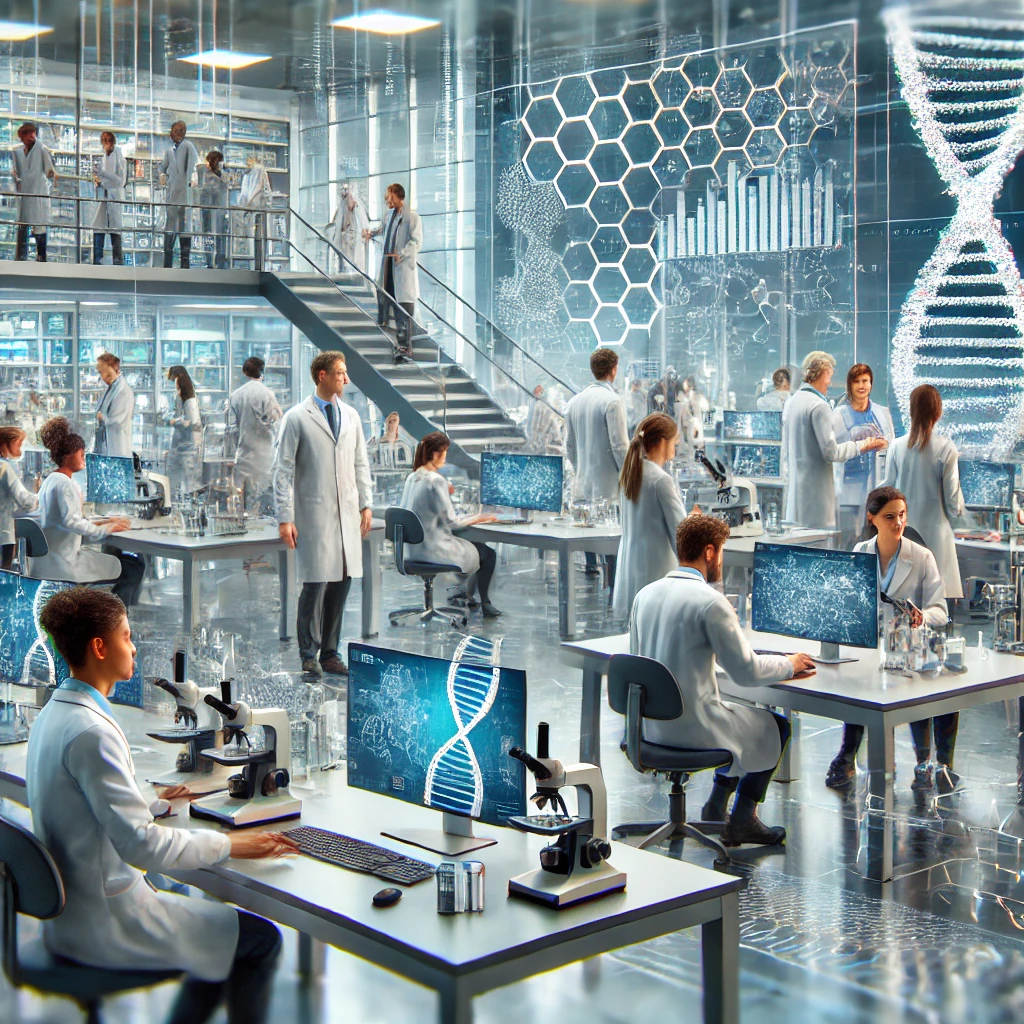Nestled in the picturesque city of Dresden, Germany, the Max Planck Institute of Molecular Cell Biology and Genetics (MPI-CBG) represents a cornerstone of innovation in the scientific community. Led by the visionary Frederic Bonnet, MPI-CBG has consistently pushed the frontiers of knowledge in molecular biology and genetics, fostering discoveries that reverberate across the global scientific landscape.
The Genesis and Evolution of MPI-CBG Frederic Bonnet
The MPI-CBG was established with a mission to unravel the mysteries of cell biology and genetics. The institute quickly distinguished itself through its interdisciplinary approach, blending advanced imaging, biochemistry, physics, and computer science techniques to explore cellular function in unprecedented detail.
Under Frederic Bonnet’s leadership, the institute has expanded its focus to include developmental biology, tissue regeneration, and the mechanics of cellular processes. Bonnet, known for his dynamic leadership style, emphasizes the importance of fostering a collaborative environment where innovation can thrive. This approach has cultivated a culture of curiosity and relentless pursuit of knowledge that defines MPI-CBG.
MPI-CBG Frederic Bonnet Vision and Contributions
Frederic Bonnet, a seasoned scientist with an impressive track record in molecular biology, took the helm at MPI-CBG with a clear vision: to further the understanding of cellular and genetic mechanisms in health and disease. His strategic focus on recruiting diverse talents and expanding research facilities has significantly enhanced the institute’s capabilities.
Bonnet’s own research has contributed extensively to understanding cellular dynamics. His work on the signaling pathways in cellular growth and division has been pivotal in the field. His leadership has not only advanced research but also ensured that MPI-CBG remains at the cutting edge of technological advancements in scientific research tools.
Current Research Endeavors at MPI-CBG Frederic Bonnet
Today, MPI-CBG’s research agenda spans several key areas:
- Cellular Biochemistry and Biophysics: Researchers are decoding the molecular and biophysical underpinnings of cell function.
- Developmental Genetics: Understanding the genetic control of development and its implications for disease.
- Systems Biology: Employing computational tools to model complex biological processes.
- Tissue Regeneration: Investigating the mechanisms that allow organisms to regenerate tissue, with implications for regenerative medicine.
State-of-the-art facilities and a network of international collaborations support these research areas, enhancing the institute’s ability to tackle complex biological questions.
MPI-CBG Frederic Bonnet Collaborations and Global Impact
Under Bonnet’s guidance, MPI-CBG has cultivated partnerships with other leading research institutions and industries worldwide. These collaborations have not only broadened the scope of MPI-CBG’s research but also accelerated the translation of its discoveries into practical applications, particularly in the fields of medicine and biotechnology.
Nurturing the Next Generation of Scientists
Central to Frederic Bonnet’s strategy for MPI-CBG, and indeed a cornerstone, is a strong emphasis on education and training. Consequently, the institute commits to nurturing the next generation of scientists by providing a robust training program that skillfully combines rigorous scientific education with hands-on research experience. Additionally, world-renowned scientists mentor graduate students and postdoctoral researchers at MPI-CBG, who also have access to cutting-edge technologies, preparing them to become leaders in their respective fields. This sustained focus on education ensures a continuous flow of fresh ideas and innovative approaches within the institute.
Public Engagement and Science Communication
Frederic Bonnet strongly believes in the crucial role of science in society and the importance of public engagement. Furthermore, MPI-CBG hosts regular public lectures, workshops, and open days, inviting the community to engage with scientists and learn about the latest research developments. Moreover, these initiatives serve to demystify complex scientific concepts and highlight the practical implications of the institute’s work. By fostering a dialogue between scientists and the public, MPI-CBG not only aims to promote scientific literacy but also inspires future generations to pursue careers in science.
MPI-CBG Frederic Bonnet Environmental Sustainability in Research
Under Bonnet’s leadership, MPI-CBG has also embraced the challenge of environmental sustainability. The institute has implemented green practices in its laboratories and facilities, striving to reduce its carbon footprint and promote sustainability in scientific research. These efforts include optimizing energy use, reducing waste, and encouraging sustainable lab practices among its staff and researchers. Consequently, by setting a standard for environmental responsibility, MPI-CBG is leading by example in the scientific community, proving that high-caliber research can indeed go hand-in-hand with ecological consciousness.
The Global Reach of MPI-CBG Frederic Bonnet
MPI-CBG is not merely a powerhouse in Germany; its influence extends globally. Through international collaborations and partnerships, the institute contributes to and benefits from the global exchange of ideas, technologies, and talents. These international connections not only enhance the institute’s research capabilities but also bring diverse perspectives to bear on complex scientific problems. Furthermore, by maintaining a global outlook, MPI-CBG ensures that it stays at the forefront of global scientific endeavors and continues to contribute to worldwide advancements in molecular biology and genetics.
Looking Ahead: The Future of MPI-CBG Frederic Bonnet
As we look to the future, MPI-CBG under Frederic Bonnet’s leadership is poised to continue its trajectory of scientific excellence. The institute is expanding its research into new, promising areas such as the interface of biology with machine learning and artificial intelligence. These ventures promise to further enhance our understanding of life at a molecular level and could lead to breakthroughs in personalized medicine and synthetic biology.
Conclusion
MPI-CBG, guided by Frederic Bonnet, stands as a beacon of hope in modern science. Its commitment to pushing the boundaries of our understanding in biology and genetics ensures it will impact generations to come. Through its vibrant scientific community, robust research programs, and a forward-thinking leader at its helm, MPI-CBG Frederic Bonnet Leading Innovations in Molecular Biology continues to be a pivotal force in shaping the future of scientific inquiry and medical innovation.

